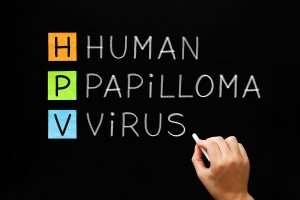A research group has determined that the HPV vaccine shows effectiveness.
More than 10 years have elapsed since the HPV vaccination program has been introduced. The HPV Vaccination Impact Study Group of Laval University in Quebec, Canada examined how effective the HPV vaccination program is. To this effect they reviewed 65 studies from 14 countries that have an HPV vaccination program. The results were published in the Lancet.
Existing vaccines
The most common vaccine targets two carcinogenic HPV strains, namely HPV-16 and HPV-18 known to cause cervical cancer. This vaccine protects against the two strains that are responsible for 70% of cervical cancer. Another version of the vaccine prevents 90% of genital warts.
Vaccination for various age groups
In some countries there was only one age group that was covered with HPV vaccination, namely age 13 to 19. In other countries women aged 20 to 24 were offered vaccination as well.
Results demonstrating HPV vaccine shows effectiveness
For girls aged 13-19 HPV infections had reduced by 83%. Anogenital warts reduced 67% among girls aged 15-19. There also was a drop in precancerous cervical lesions of 51% in girls of the ages 15-19.
For women ages 20-24 the results were less significant. HPV infections were down by 66%, anogenital warts were down by 54% and precancerous cervical lesions down by 31%.
In men there was also an effect of the HPV vaccine, although not as impressive as in women. Anogenital warts in boys ages 15-19 showed a reduction by 48%, while men ages 20-24 had a decrease of 32%.
Participation in HPV vaccination program varies between countries
The researchers noted that some countries do not participate in the HPV vaccination program. Others are not persistent and as a result have a low participation rate. The best statistics came from the countries where the participation rate in the HPV vaccination program was the highest.
Melanie Drolet, PhD, the chief researcher said: “We are now trying to determine when elimination could be possible and which vaccination and screening programs could help us achieve this goal faster.”
Conclusion
More than 10 years ago the HPV vaccination program for teenagers started. An HPV Vaccination Impact Study Group at Laval University, Quebec, Canada has now looked into the impact of the vaccine. It came to the conclusion that the vaccine is most effective for girls age 15 to 19. The evidence for this was that the HPV infection rates in girls with the vaccine were 83% lower than in girls without the vaccine. Anogenital warts were down by 67% and precancerous cervical lesions were down by 51%. Women aged 20-24 showed a lesser amount of benefit. In addition, anogenital warts in boys ages 15-19 had a reduction by 48%, while men ages 20-24 had a decrease of 32%. The authors are now studying which vaccination program and which screening program would help to eradicate cervical cancer at the fastest rate.







